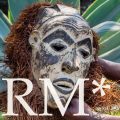These are not simply academic inquiries; they are fundamental to how societies remember, represent, and relate to their cultural legacies.
Historically, interpretation has been dominated by experts, institutions, and states.
However, contemporary approaches are increasingly challenging these hierarchies by foregrounding community voices, Indigenous knowledge systems, and alternative narratives.
This paper explores the evolution of heritage interpretation, the tensions between authorized and subaltern voices, and the shifting politics of storytelling in the heritage field.
Heritage interpretation that centers multiple voices fosters justice, healing, and understanding.
It affirms that heritage belongs not to a select few, but to all of us—and that its meaning is not imposed, but co-created.
Returning artifacts is not only about physical custody – it is also about narrative sovereignty, about enabling communities to present their heritage in their own voices and cultural contexts.
In this light, interpretation becomes not just a scholarly task, but a shared human responsibility.


